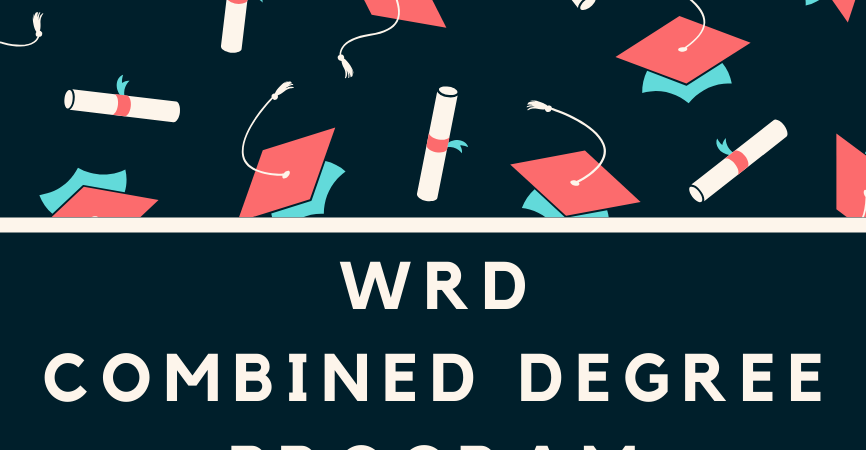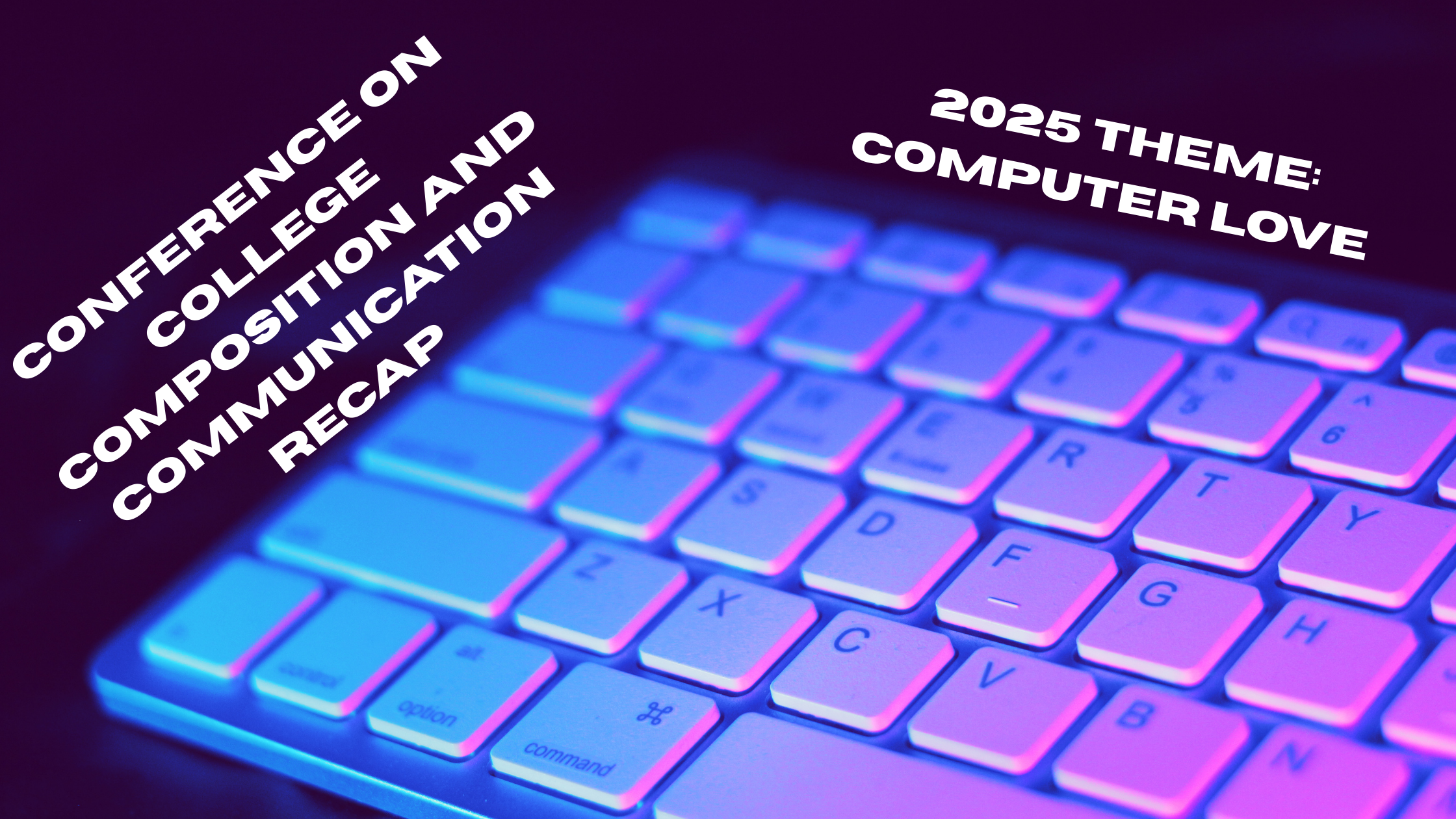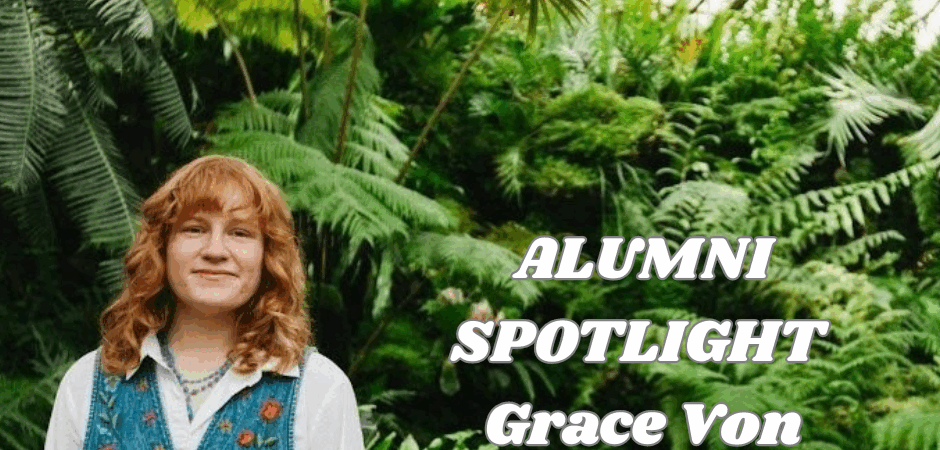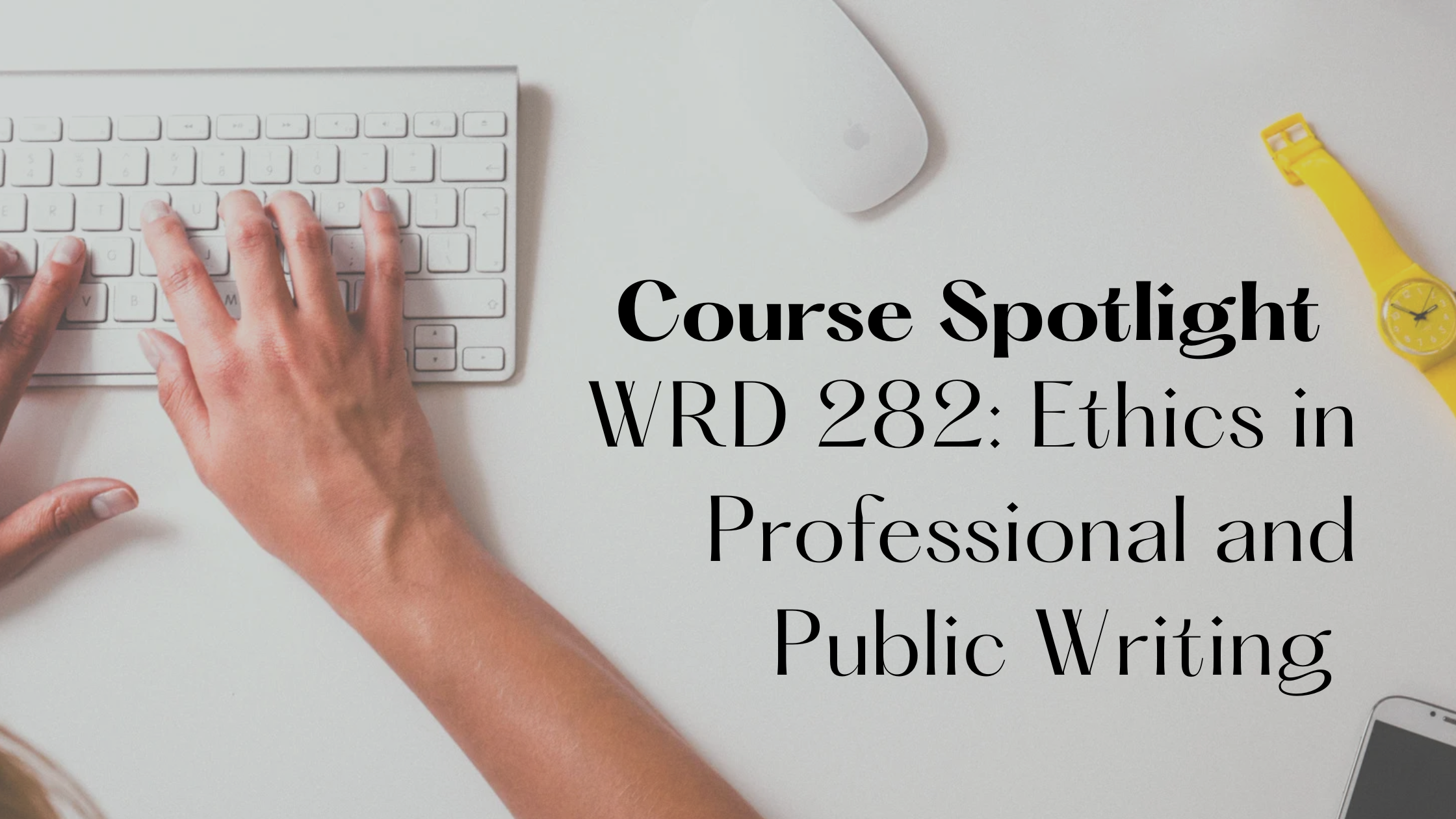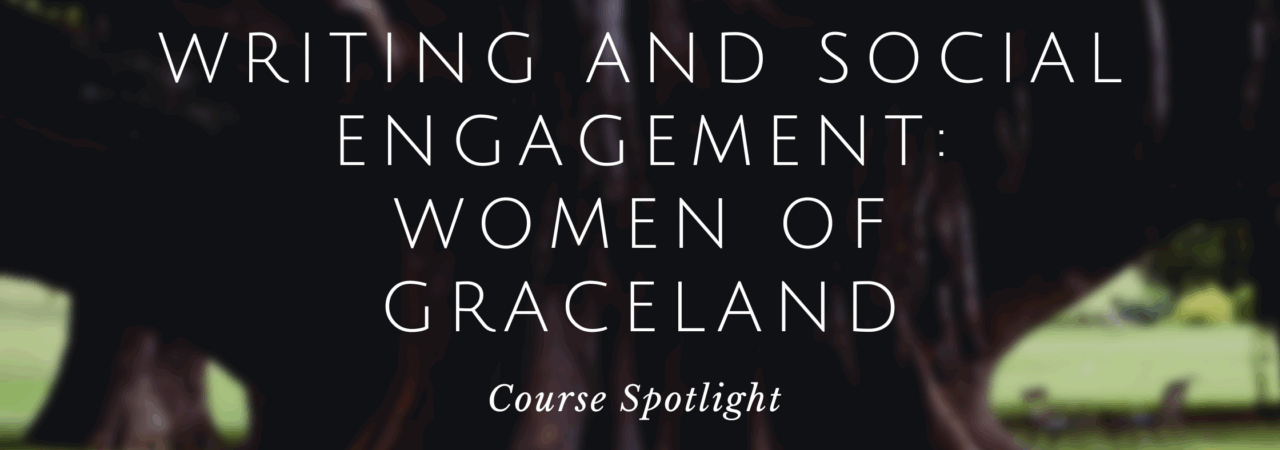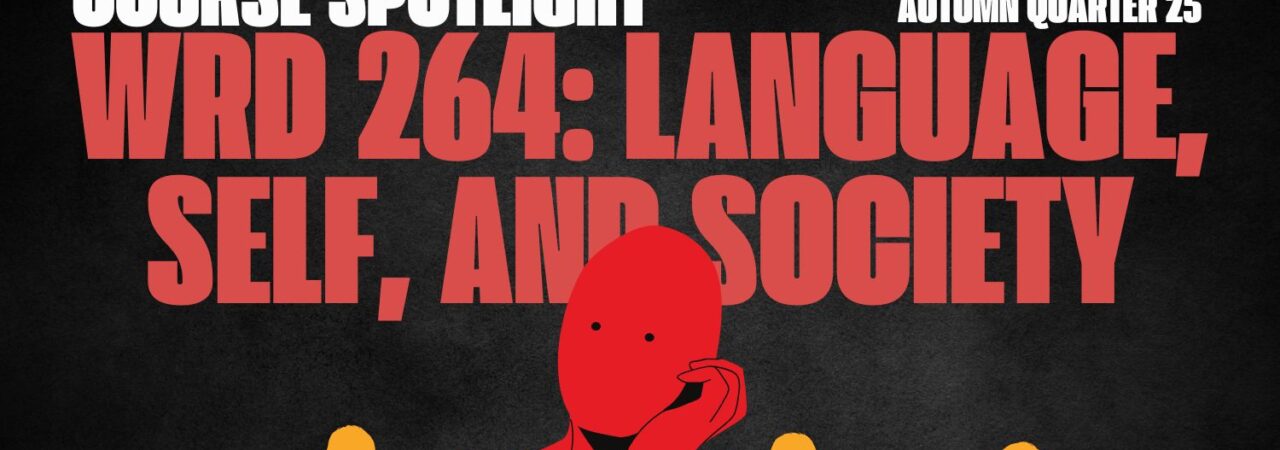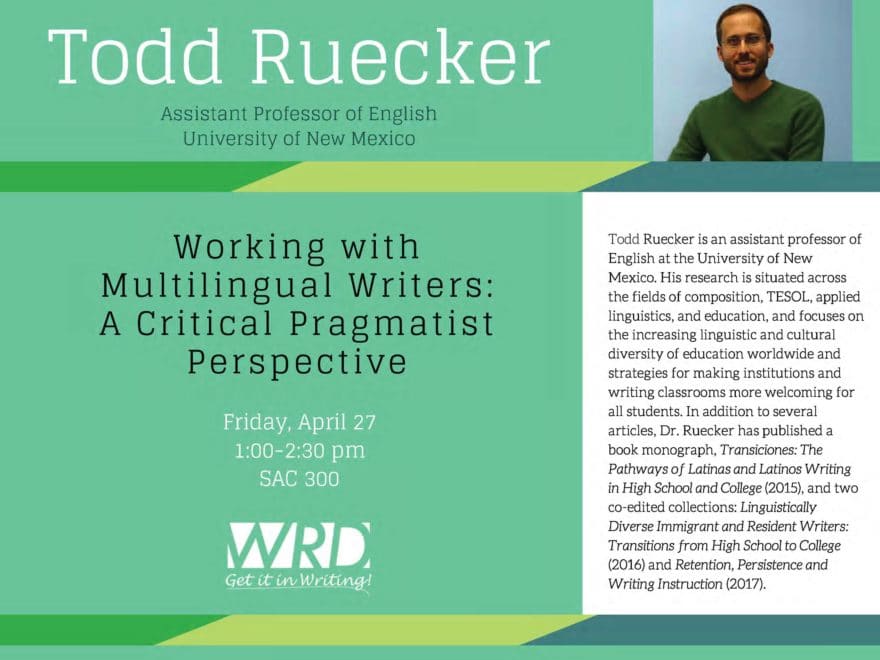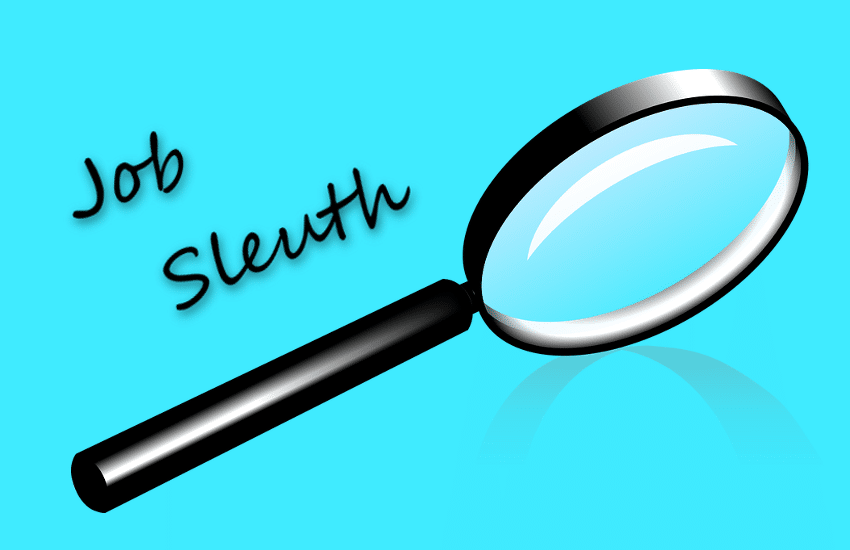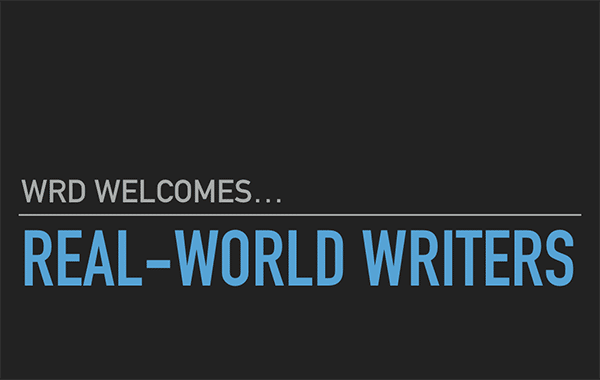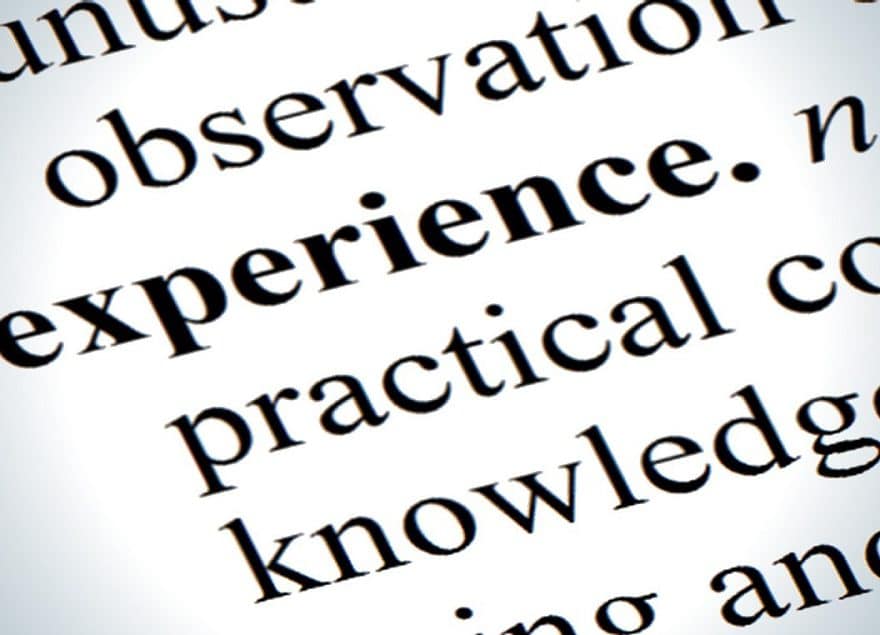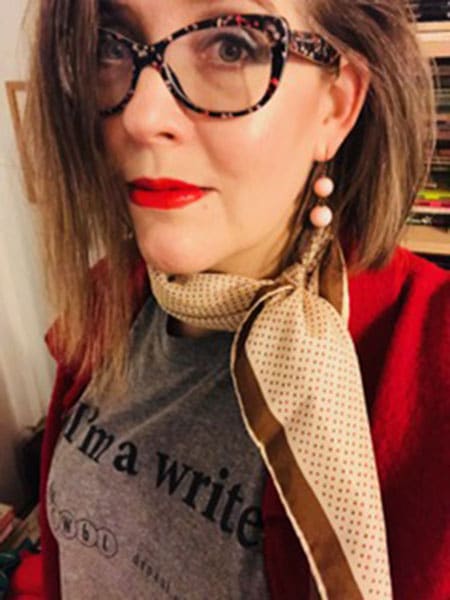Did you know that the WRD Department offers two Combined Degree Programs that can help you save time and money while you earn your Bachelor’s and Master’s degrees? Learn more about the advantages of these programs to see if a Combined BA/MA is right for you.
Continue reading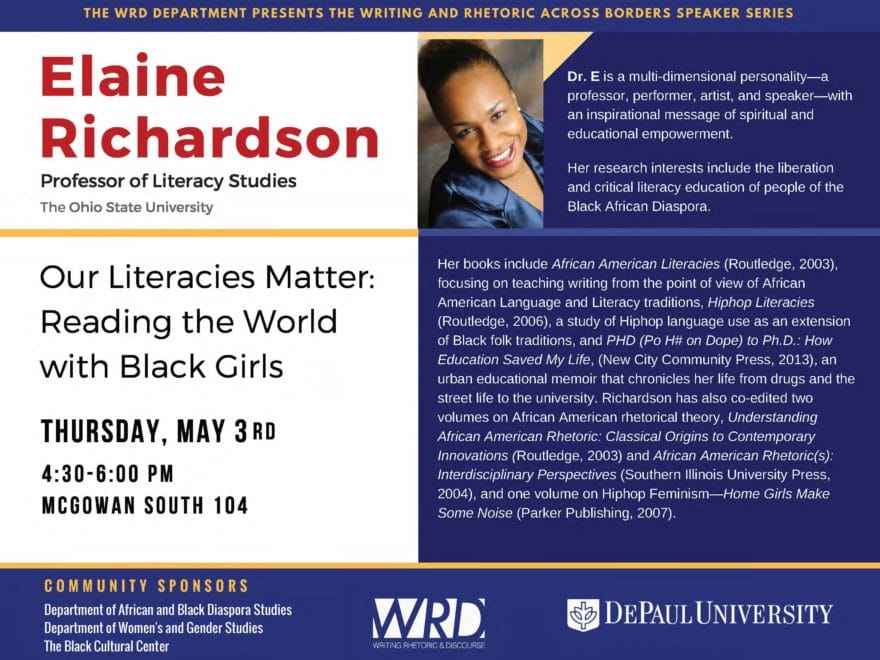
Elaine Richardson Recap
The WRD Department welcomed Dr. Elaine Richardson, Professor of Literacy Studies from The Ohio State University, as part of our ongoing quarterly speakers series, Writing and Rhetoric Across Borders. Dr. Richardson’s talk was co-sponsored by the Department of African and Black Diaspora Studies as well as the Department of Women and Gender Studies and the Black Cultural Center.
Continue reading